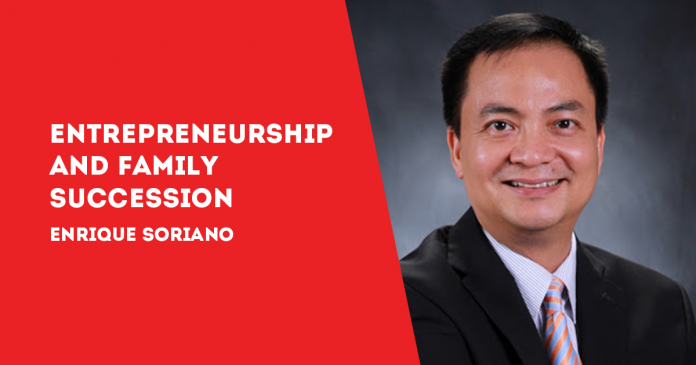
(Part 1: When Power Becomes a License to Enrich the Few)
THE Philippines has recently been rocked by revelations of large-scale corruption in flood control projects. Kickbacks, padded contracts, and even ghost projects were uncovered—public funds meant to protect lives and communities were diverted to enrich a select few. At the heart of this scandal is the absence of accountability and oversight. When power is unchecked, self-interest becomes the default.
This outrage should be a wake-up call for family businesses. What we see in governments plagued by corruption often mirrors what occurs in families who inherit wealth and enterprises but fail to establish governance rules. In both, unchecked authority, lack of transparency, and the absence of accountability enable individuals to enrich themselves at the expense of the collective good.
The Family Business Parallel
In family enterprises, the founder is often the ultimate authority. Decisions—sometimes unilateral—are tolerated because of the founder’s vision and contributions. But once the founder is gone, the vacuum of power often devolves into self-serving behavior. Without governance, successors may inherit the same authoritarian style, but without the founder’s wisdom or long-term perspective.
Just as officials in the flood control scandal demanded kickbacks, family members may exploit their positions—granting sweetheart deals to allies, diverting funds, or entering questionable joint ventures. The absence of rules breeds abuse, and unchecked abuse breeds mistrust and conflict.
Case Study: Inflated Contracts in a Family Conglomerate
Consider the case of the S family, owners of a diversified business in real estate and manufacturing. After the patriarch’s passing, his three children inherited equal shares. The eldest son, now CEO, quietly arranged for a construction firm he partly owned to handle all building projects.
The contracts were consistently overpriced, and the margins suspiciously high. For years, dividends dwindled even as revenues appeared steady. An external auditor—hired at the insistence of a minority shareholder cousin—uncovered that millions were being siphoned off through inflated contracts.
The result was devastating. Litigation ensued, cousins stopped speaking, and one branch began selling its stake, unable to stomach what they saw as betrayal. The lack of oversight allowed one individual to enrich himself, while others entitled to fair returns were left in the dark.
The Price of Silence
What happened to the S family is not unusual. In many Asian family businesses, loyalty to bloodlines discourages confrontation. Relatives whisper about questionable practices but remain silent to avoid “dishonoring” the family name. Over time, silence becomes complicity. Just as the flood control scandal shows how billions can vanish through passivity, family businesses risk losing their legacy when enrichment of a few goes unchecked.
The price is not just financial. Relationships fracture, reputations suffer, and the sense of shared purpose that should bind generations together is lost. In the end, the business becomes a battlefield rather than a legacy.
The Missing Guardrails
The lesson is clear: families cannot depend on goodwill alone. Structures must be put in place to prevent abuse. These include:
* A Family Constitution defining values, vision, and participation rules.
* A Family Council where grievances can be aired and decisions discussed transparently.
* A Shareholder Agreement that protects minority interests and sets protocols for transactions.
* An Independent Board that ensures decisions align with long-term sustainability.
These guardrails do not eliminate conflict, but they contain it within a framework of fairness. They prevent a single branch—or a single person—from hijacking the enterprise for personal gain.
A Call to Reflection
The flood control scandal illustrates how systems collapse when leaders see power as a license to enrich themselves. Family businesses must take this as a cautionary tale. If governments, with all their checks and balances, can be undermined by corruption, how much more vulnerable are families where rules are absent and accountability is optional?
In the end, without accountability structures, family wealth is drained, trust collapses.
In Part 2, the topic will be the cost of conflict of interest in family enterprises
***
Family Governance Masterclass
Tensions in the boardroom—or even at the family dinner table—can quietly erode both wealth and relationships. The time to act is now.
Join our exclusive in-person Family Governance Masterclass:
* Iloilo City – Nov 8
* Cebu City – Nov 15
* Manila – Nov 29
This high-impact session will equip your family to:
* Prepare the next generation with clarity and discipline
* Align values with business goals
* Build governance that preserves both wealth and harmony
* Protect your legacy for generations
Seats are limited to ensure a focused, results-driven experience.
Reserve now: wb@wbadvisoryasia.com (look for Maica)
Protect what matters most—not just for today, but for decades to come./PN







